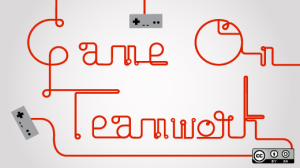I’ve been involved with a fair share of open source activities, game-related and otherwise, and by and large I have thoroughly enjoyed the ride. It all started with an overly ambitious open source game. It never went anywhere, yet I treasure the time I spent working on it. This project sent me head first into the marvels of collaborative open source–and game development, without any training wheels. It’s an experience and an education that comes highly recommended, but is not without its hits and misses. Getting it right the first time ultimately comes down to chance, but if nothing else, sharing my experience might improve your odds.
Keep reading to find out more.
What are open source games?
Open source game development is often considered a hobby–much the way Linux developers were considered hobbyists, before their operating system gained a foothold in the datacenter. There’s a lot to be said about open source in the game industry at large, but that’s a different–and complicated–topic. My aim is to help aspiring game developers find an open project to their liking, specifically a team, and right now that means going where the hobbyists are at.
Get talented
Games are a rather awe-inspiring collaborative medium. If you are exceptionally passionate about games, chances are you already possess parts of the skill set necessary for game development, be it drawing, writing, sculpting, composing, coding, or modding. Now pick your favorites and hone your skills.
That said, I strongly advise you to get technical. This doesn’t necessarily have to involve programming, although it’s always a major plus in this field. Most importantly, just get a rough overview of the tools of the trade: Game engines, programming languages, 3D modeling, formats, wikis, version control, desktop versus mobile versus web and all that good stuff.
Independent preparation
If you want to sharpen your skills before getting involved with a group of fellow developers (hint: you should), then trying to make your own game is a no-brainer. If you’re looking for a motivational push, there’s nothing like a little bit of competition:
- Ludum Dare – Frequently hosted 48-hour game competitions. Mainly for programmers.
- GameCareerGuide’s Game Design Challenges – A bi-weekly creative workout for designers. Developers going the extra mile with prototypes and concept art usually stand a good chance at being recognized.
This is an extremely small sampling of what’s out there. The handy thing about these competitions is that they don’t require a whole team to accomplish something; you can do it all by yourself. While this article promotes game development as a team effort, independence remains a key component. We’ll get back to that–just know that talent attracts talent.
Find a project
There are plenty of places to look, but the majority of hobbyist projects out there will make an appearance at one of these watering holes:
That’s a lot of projects… Choosing the right project to match your particular skill set and interests can prove to be quite the challenge. Remember, no one’s gonna want to work with you if you’re not enthusiastic about the game you’re making.
Take your time, and for the love of all that is good, pick a project that looks achievable within just a couple of months, at most. There are disappointingly few of these around, but for a first-timer, a short-term project where you can quickly enjoy the results is highly recommended.
My top tip: Progress is the best sign of promise; look for it. Dig into news archives, forums, and code repositories to look for healthy levels of activity.
Join
Truth is, the ratio of complete to incomplete open source games could use a boost. But don’t let that hamper your drive. When you’ve decided on a project you’d like to join, just create something you think they need and publish it. You don’t have to ask permission. This is the epitome of open-source game development.
Whenever you’ve made something, strut your stuff! On today’s web, that’s in fact easier done than said. And by doing so, you’re effectively documenting your work and promoting yourself as an aspiring game developer–and bringing attention to the project you’re engaged in.
There is no guarantee your work will be used, but you’ve officially worked on an open source game. Congratulations!
